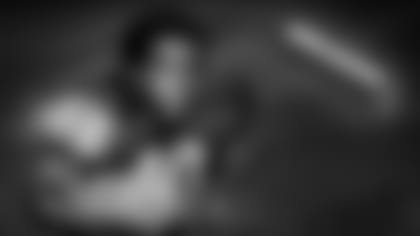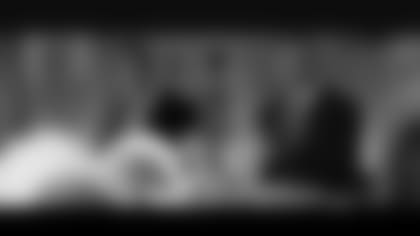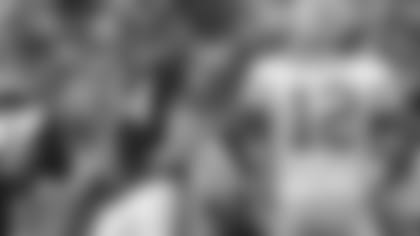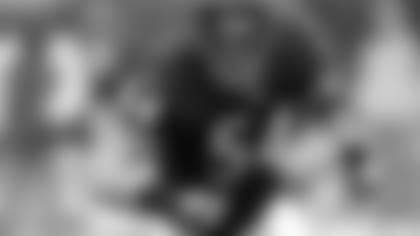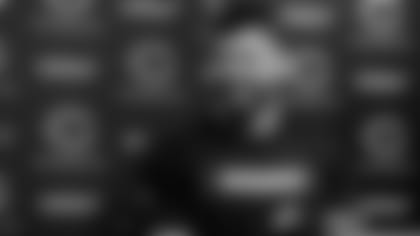In 1970, the Bears lost a coin flip to the Pittsburgh Steelers for the right to select quarterback Terry Bradshaw with the No. 1 overall pick in the NFL Draft.
The two teams had finished with identical 1-13 records, with the Bears' lone victory ironically coming against the Steelers at Wrigley Field.
Five years later, however, lady luck was back on the Bears' side when they won a coin flip with the Cleveland Browns for the No. 4 choice in the 1975 draft. The Bears used the pick to select legendary Hall of Fame running back Walter Payton.

The Bears won a coin flip with the Browns for the draft pick they spent on running back Walter Payton in 1975.
Although he played at tiny Jackson State, Payton was hardly an unknown commodity heading into the draft. "Sweetness" was a two-time first-team All-American who set the NCAA scoring record with 464 points, broke nine school records and received some Heisman Trophy votes.
"He wasn't any deep secret," then-Bears coach Jack Pardee said on Jan. 28, 1975, the day Payton was drafted. "Everyone in the country knows about him."
Maybe so, but few imagined that Payton would become the NFL's all-time leading rusher and arguably the greatest player in Bears history. Then again, the Mississippi native was seemingly convinced that he would enjoy a special career in the Windy City. "When I get through with Chicago, they'll be loving me," Payton famously predicted the day he was drafted.
Heading into the draft, running back was considered the Bears' biggest need. Ken Grandberry had led the team in rushing in 1974 with just 475 yards and two touchdowns on 144 carries.
Many scouts felt that Texas A&I's Don Hardeman was the best runner available. But Hardeman was selected by the Houston Oilers with the 15th pick and rushed for only 1,460 yards and 11 touchdowns on 397 carries in five NFL seasons with the Oilers and Baltimore Colts.
The three players chosen ahead of Payton were quarterback Steve Bartkowski (Atlanta Falcons), defensive tackle Randy White (Dallas Cowboys) and guard Ken Huff (Baltimore Colts).
The Colts initially held the No. 1 pick, but they traded it to the Falcons along with a sixth-round choice in exchange for the No. 3 selection and All-Pro offensive lineman George Kunz. Baltimore wasn't interested in Bartkowski, the consensus No. 1 pick, because it had selected emerging young quarterback Bert Jones with the second overall pick in 1973.
The Colts didn't really need a running back either given the presence of eventual three-time Pro Bowler Lydell Mitchell. So they opted to address their offensive line. When Baltimore chose Huff, Pardee revealed that "a nice cheer went up" in the Bears' draft room.
"We've been sweating it out all night," he said the next day. "What happened is what we were hoping for. Had we been in Atlanta's spot, we'd have chosen Walter Payton. We thought that much of him."
The next day, the Chicago Tribune speculated that "Payton's addition raised immediate doubt about the future of (incumbent running back) Carl Garrett with the Bears."
The Browns, meanwhile, selected defensive end Mack Mitchell at No. 5. They may not have taken Payton even if they had won the coin flip with the Bears, however. Cleveland's director of player personnel at the time, Bob Nussbaumer, said that the team's draft priorities were defensive end and wide receiver.
Payton ultimately spent his entire 13-year NFL career with the Bears. He was voted to nine Pro Bowls, set the NFL rushing record with 16,726 yards and was inducted into the Pro Football Hall of Fame in 1993 in his first year of eligibility.


